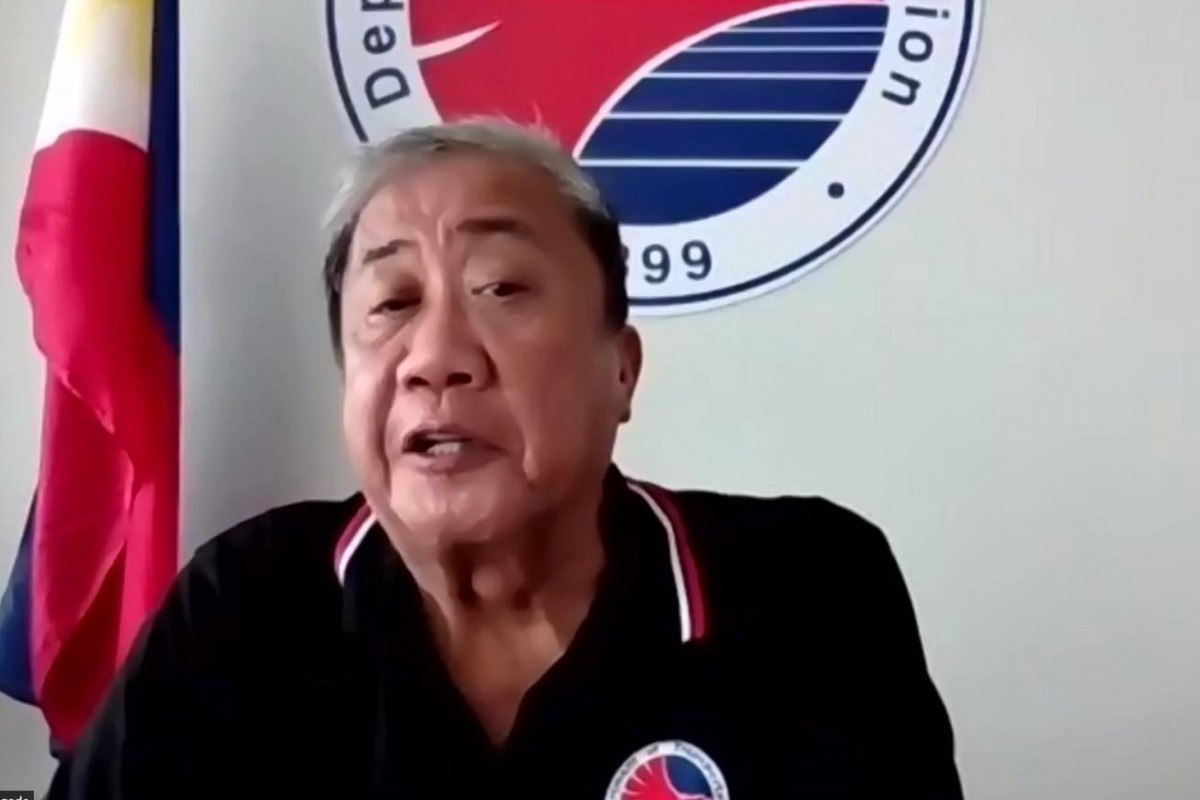QUEZON CITY -- Department of Transportation (DOTr) Secretary Art Tugade said that the current public transport supply and capacity will be retained in the National Capital Region (NCR) during the imposition of the enhanced community quarantine (ECQ) from August 6 to August 20.
Tugade said the latest Omnibus Guidelines approved by the Inter-Agency Task Force for the Management of Emerging Infectious Diseases (IATF-EID) have allowed the continued operation of public transportation, at such capacity and supply as recommended by the DOTr.
Secretary Tugade, however, stressed that only Authorized Persons Outside Residence (APORs) as identified by the IATF-EID will be accommodated by public transport services.
"Restrictions will be applied on passengers. There will be stricter enforcement to ensure that only APORs are permitted to use public transport, as mandated by the IATF," said Tugade.
“APORs are reminded to be ready to present to transport marshals identification cards issued by the IATF or other documents or IDs as proof that they are authorized to travel,” Tugade added.
Secretary Tugade clarified, however, that although the DOTr was given the authority to decide on the number of public transport vehicles to be allowed during the ECQ period as well as on the number of commuters to be allowed in public transport, the IATF may make changes.
"But, should the IATF decide otherwise, we will abide," Tugade added.
During the ECQ, public transportation, and all other modes of transportation - privately-owned, with special permit, and/or dedicated service under government initiative, etc., shall strictly observe the prescribed physical distancing and sanitary measures at all times.
Road Transport Sector
During the enforcement of the ECQ in the NCR, public utility vehicles, such as buses and jeepneys are allowed to operate at 50% capacity on a “one-seat-apart” setup. Standing passengers will not be allowed, and only one passenger will be allowed at the driver’s row.
Motorcycle taxi services and Transport Network Vehicle Service (TNVS) operations are allowed during the ECQ period.
The use of active transport, such as bicycles and electric scooters, is being encouraged.
For tricycles, passenger load shall not exceed one (1) passenger in the side-car. Further, the operations of tricycles shall be approved by the Department of Interior and Local Government (DILG) and Local Government Units (LGUs) in compliance with the existing policies on its operational limitations.
Railways Sector
All trains of the Philippine National Railways, LRT-1, LRT-2, the PNR and the MRT-3 will be deployed during the ECQ period. Secretary Tugade said all trains will have transport marshals to enforce health protocols and to identify APORs. Trains will also be disinfected after every loop.
Transport marshals inside the trains will also strictly enforce health and safety protocols which include the wearing of face shields and masks at all times; compliance to the "no talking and eating' policy; ensuring adequate airflow and ventilation; and enforcement of social distancing, as well as proper disinfection and sanitation.
Passengers showing symptoms of COVID-19 will not be allowed to board trains. Temperature checks will be done at station entrances .
Aviation and Maritime Sectors
Meanwhile, domestic flights and sea travel in the NCR will also continue during the ECQ, subject to community quarantine restrictions of the destinations.
The DOTr advises passengers to avoid inconvenience by first inquiring with their airlines or shipping lines/Ro-Ro about the status of flights/sea travels, and if they are allowed to board such flights before going to the airport or seaport.
Strict Enforcement of Health Protocols
Secretary Tugade said stricter health protocols will be also be enforced by I-ACT enforcers and transport marshals at the various transport terminals and stations to make sure that public transport health protocols will be observed.
Marshals would be strictly enforcing the seven commandments of public transport safety at the transport stations and terminals, and inside public transport vehicles.
The 7 Commandments for Public Transport, based on the recommendations of health experts, are:
1. Wear masks and face shields;
2. No talking and making phone calls;
3. No eating;
4. Keep public utility vehicles well-ventilated;
5. Conduct frequent disinfection;
6. No passengers with COVID-19 symptoms are to be allowed inside the public transportation; and
7. Observe appropriate physical distancing (“one-seat-apart”) rule.
Secretary Tugade also appealed to commuters and transport operators to help the government enforce the strict health protocols especially at this time when the country is battling the spread of the highly-contagious Delta variant.
“We at the DOTr reiterate the need for us to strictly observe the necessary health and safety measures aboard public transportation. We are more adamant now, as we reinforce the government initiatives and measures to prevent the spread of the highly-transmissible Delta variant,” Sec. Tugade said.
“We therefore remind the riding public of the importance of stringently observing the Public Transport Health Protocols, based on the recommendations of health experts, to protect and uphold the overall welfare of the passengers, and other transport stakeholders,” Tugade added. (DOTr)



